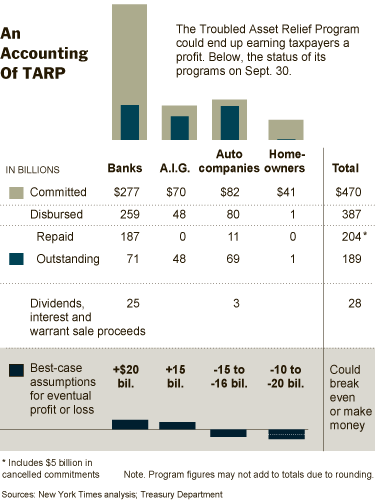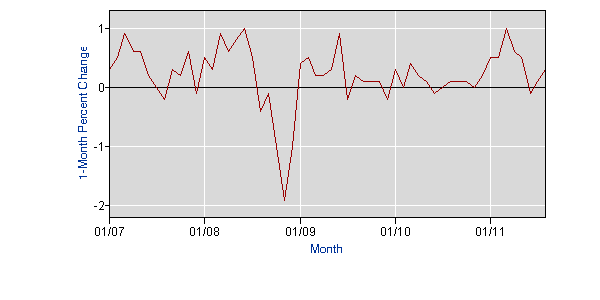JimBowie1958
Old Fogey
- Sep 25, 2011
- 63,590
- 16,753
- 2,220
An entire system of global trade is at risk - Telegraph
This guy just doesnt get it. Recapitalization wont work because the root problem to this whole thing is the collapse of mortgage debt related securities and their amplified impact through the use of CDS. This is ine effect an exponentially growing problem that started with Greek banks being threatened with bankruptcy so the Greek government bailed them out. Then the Greek government was put in the red by the growing debt, and so they went to the EMU for a bailout. Now the EMU wants a bailout from the G7, then the G20 with the IMF as a backstop. These idiots dont understand what Einstein said was the most powerful force in the universe; exponential growth.
So the choice is either to 1) bail out the banks over and over till every government on the planet is out of money. And then everything collapses, or 2) Let the banks fail, have the government step in and act in the void they leave until other banks can organize to step in in place of the big banks that failed.
Europe and the US have been doing 1) with failing results, kicking the can down the road and stealing the wealth from everyone else by eroding the value of the US dollar. But eventually this will collapse through either hyper-inflation from the government running the monetary digital creation apps 24/7 or massive deflation if the government does not attempt to massively soak the world in fiat currency. The 'sweet spot' where it can hit a happy median with neither hyperinflation nor deflation does not exist except int he minds of Keynesians.
Iceland took option 2), let the banks take their lumps and now their economy is growing strong all on its own.
When will we wake up and choose door number 2?
If it has been obvious for some time that we are caught up in an extreme financial crisis, the extent of its severity has acquired greater clarity in being described by the Governor of the Bank of England. Never before has the global financial system been so interlinked and integrated, which means that problems in one part of the world are capable of causing severe stress almost everywhere else. We once more face a perfect storm of cascading default, contracting credit and collapsing economic activity...
It is, first, essential that confidence in the eurozones banking system be restored through recapitalisation of its banks, where necessary with public money. This would help bring a halt to the destructive downward cycle in credit.
Politically unpalatable though it would be, Britain may have to stand ready to participate in the process by similarly supporting its own banks. To once more dip into our pockets to bail out the bankers, at a time of deep public spending cuts and swingeing tax increases, will to most people be anathema. And for UK banks, it may not be strictly necessary the Chancellor, George Osborne, insisted yesterday that they were well capitalised and liquid.
Yet, like it or not, we remain joined at the hip to Europe. This is especially the case through the banking system, which is highly exposed to the eurozones inner tortures. If a plan of mass recapitalisation is to work, it has to include everyone, good as well as bad. For countries and bankers to start squabbling among themselves about who needs to be bailed out and who doesnt merely risks accentuating the paralysis...
But in the end, none of these measures can be any more than sticking-plaster solutions. Until the imbalances between creditor and debtor nations in the eurozone and the wider world economy are addressed, it is only a matter of time and possibly not much time at all before the crisis returns anew. It is therefore to be hoped that the G20 summit in Cannes next month can come up with some form of global contract that goes beyond the meaningless commitments and rhetoric of the past to provide convincing mechanisms for addressing such imbalances and strains once and for all.
At risk is a system of global trade and interaction unparalleled in human history one that has lifted hundreds of millions out of poverty and delivered unprecedented prosperity to hundreds of millions more. Will this really be thrown away for want of resolve?
This guy just doesnt get it. Recapitalization wont work because the root problem to this whole thing is the collapse of mortgage debt related securities and their amplified impact through the use of CDS. This is ine effect an exponentially growing problem that started with Greek banks being threatened with bankruptcy so the Greek government bailed them out. Then the Greek government was put in the red by the growing debt, and so they went to the EMU for a bailout. Now the EMU wants a bailout from the G7, then the G20 with the IMF as a backstop. These idiots dont understand what Einstein said was the most powerful force in the universe; exponential growth.
So the choice is either to 1) bail out the banks over and over till every government on the planet is out of money. And then everything collapses, or 2) Let the banks fail, have the government step in and act in the void they leave until other banks can organize to step in in place of the big banks that failed.
Europe and the US have been doing 1) with failing results, kicking the can down the road and stealing the wealth from everyone else by eroding the value of the US dollar. But eventually this will collapse through either hyper-inflation from the government running the monetary digital creation apps 24/7 or massive deflation if the government does not attempt to massively soak the world in fiat currency. The 'sweet spot' where it can hit a happy median with neither hyperinflation nor deflation does not exist except int he minds of Keynesians.
Iceland took option 2), let the banks take their lumps and now their economy is growing strong all on its own.
When will we wake up and choose door number 2?


